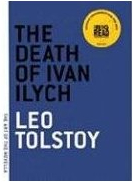My Summer Reading: Author Tibor Fischer | reviews, news & interviews
My Summer Reading: Author Tibor Fischer
My Summer Reading: Author Tibor Fischer
The voices of Russia, young and old, and a Boys' Own adventure
Born in Stockport in 1959, Tibor Fischer is the son of two Hungarian basketball players who fled their homeland during the 1956 revolution; his 1992 Booker-nominated debut novel, Under the Frog, revisited this subject in wonderfully fleshy, blackly comic form. In 1993 Fischer was included in Granta's influential list of the 20 best young British writers, and in the ensuing two decades he has fulfilled that promise with a series of richly rewarding novels and short stories.
I’m just finishing the latest issue of Glas magazine, Squaring the Circle. Glas is devoted to translating contemporary Russian literature and this issue features writers who have won the Debut prize, a very unusual prize as it’s for writers under the age of 25, so you’re really getting the freshest wave of Russian writing, from those for whom the Soviet Union is ancient history.
It’s a very varied collection in terms of style and subject, and it might be hard work if you know nothing about the background of that part of the world, but it’s been an educational and fascinating read for me.
 [Extract from Glas: Modern Day Pastoral by Igor Savelyev, translated by Amanda Love Darragh]
[Extract from Glas: Modern Day Pastoral by Igor Savelyev, translated by Amanda Love Darragh]
On 17 April 2005 the Minister of Communications issued a decree, grudgingly passed by the Ministry of Justice, allowing people to travel on the "third shelf" – that is, the luggage rack – of communal train carriages. Liberally minded citizens were up in arms, as they were about most things that year, but you couldn’t argue with the facts: people simply couldn’t afford full-price rail tickets – the alternative would be going by foot along the rail track. The third shelf was hard and uncomfortable, right up under the ceiling, with no bed linen, no handrail, nothing… and tickets cost next to nothing too.
"Would you be prepared to travel like that yourself?” journalists asked the Minister, a typical hog-like bureaucrat. They seemed to have it in for everyone that year. But he was a down-to-earth kind of guy and just laughed it off.
“No. But I don’t need to! Our young people don’t have any money, though – they can’t afford to go anywhere... And they shouldn’t have a problem getting up and down, should they?”
Three days before the trip Elina experienced her first kiss – her girlish innocence was well and truly shaken and stirred. What about the train journey? No big deal, she would cope. The thing was, Elle didn’t like trains: the stuffiness, the threadbare sheets, the obligatory sweaty travelling companions… Last summer she had gone to the seaside with her parents (now you see how old-fashioned she still was!) It was torture. What she had found particularly repellent was all those naked legs hanging down from the upper bunks, dangling in the aisles. They were ugly, old and calloused. You had to look where you were walking or you might find someone’s foot in your face… ugh, disgusting. But on the way back – testimony to the miracles of sea water! – the same legs were beautiful, clean and youthful.
This time there was no sea and the summer was essentially over. But it was still an adventure! Elle was trembling with happiness, although she kept telling herself “it might fall through, it might fall through”. She had told her parents – her doting, touchingly clueless parents – the first lie that came into her head. Something about a friend in Samara. Which friend is that, then? Oh Dad, you know, we met at the seaside last year!
His name was Martin – officially Marat, but that wasn’t nearly as interesting. When a boy lets his hair grow rather than messing about with it, it’s just... gorgeous. His striking features and wide-set eyes… It was the first time it had happened to Elle, and she was totally smitten.
If you want an entertaining but intelligent summer read I’d recommend anything by Derek Robinson. He’s a shamefully underrated novelist who’s much better than Ken Follett or Robert Harris. His books are mostly set in the First or Second World War, and at first sight might seem a little Boys’ Own, but he writes with enormous wit and imagination. I’ve put him on the reading list when I’ve taught creative writing and while the women were initially a little suspicious of the military ethos, they were completely won over. My favourites are Goshawk Squadron and The Eldorado Network.
 [Extract from Goshawk Squadron (Robinson Publishing, 2005)]
[Extract from Goshawk Squadron (Robinson Publishing, 2005)]
Dickinson side-slipped delicately, and Woolley allowed his eyelids to droop and frame the scene with gauzy, golden softness: the lovely balance of the plane as it settled, like an owl, mature and masterful and so controlled that it seemed lazy, only half thinking what to do next. The instant of contact: the firm, square kiss. Then Dickinson rolled home, his left wheel squeaking. Just a man in a patched and obsolescent aeroplane. Woolley raised the binoculars again.
“Who was that up the tree?” Rogers asked. “Six”, Woolley announced loudly. "Six is... Gabriel. He’s another replacement. Came from the school in Kent.”
“Ah. Bloody Gabriel. I hate that bastard.”
“Gabriel,” said Rogers. “I wonder if his brother kept wicket for Essex before the war. J T W Gabriel. I think he was killed on the Somme.”
“Who wasn’t?” the adjutant asked.
“Not a great wicket-keeper, mind you,” said Rogers. “Good enough for Essex, though.” They watched Gabriel make a long, conscientious descent. Even from that distance, they could see his head sticking far above the cockpit. "Does he have to stand up to fly?” Woolley asked. “He’s six foot three, sir,” Rogers said. “Perfect build for a fast bowler. Big feet, really enormous feet. And hands, too. Perfect.”
“I hate that bastard,” Woolley said.I’ve been invited to the Tolstoy estate for a conference this month, so I’m going to have to give the Count’s oeuvre a hasty reread.
 [From The Death of Ivan Ilych by Leo Tolstoy (1886)]
[From The Death of Ivan Ilych by Leo Tolstoy (1886)]
Ivan Ilych had been a colleague of the gentlemen present and was liked by them all. He had been ill for some weeks with an illness said to be incurable. His post had been kept open for him, but there had been conjectures that in the case of his death Alexeev might receive his appointment, and that either Vinnikov or Shtabel would succeed Alexeev.
So on receiving the news of Ivan Ilych’s death the first thought of each of the gentlemen in that private room was of the changes and promotions it might occasion among themselves or their acquaintances.
“I shall be sure to get Shtabel’s place or Vinnikov’s,” thought Fedor Vasilievich. “I was promised that long ago, and the promotion means an extra 800 rubles a year for me besides the allowance.”
“Now I must apply for my brother-in-law’s transfer from Kaluga,” thought Peter Ivanovich. “My wife will be very glad, and then she won’t be able to say that I never do anything for her relations.”
“I thought he would never leave his bed again,” said Peter Ivanovich aloud. “It’s very sad.”
“But what really was the matter with him?”
“The doctors couldn’t say - at least they could, but each of them said something different. When last I saw him I thought he was getting better.”
“And I haven’t been to see him since the holidays. I always meant to go.”
“Had he any property?”
“I think his wife had a little - but something quite trifling.”
“We shall have to go to see her, but they live so terribly far away.”
“Far away from you, you mean. Everything’s far away from your place.”
“You see, he never can forgive my living on the other side of the river,” said Peter Ivanovich, smiling at Shebek. Then, still talking of the distances between different parts of the city, they returned to the Court.
Besides considerations as to the possible transfers and promotions likely to result from Ivan Ilych’s death, the mere fact of the death of a near acquaintance aroused, as usual, in all who heard of it the complacent feeling that “it is he who is dead and not I.”
Each one thought or felt, “Well, he’s dead but I’m alive!” But the more intimate of Ivan Ilych’s acquaintances, his so-called friends, could not help thinking also that they would now have to fulfil the very tiresome demands of propriety by attending the funeral service and paying a visit of condolence to the widow.
- Find The Death of Ivan Ilych on Amazon
- Find Tibor Fischer’s latest novel, Good to be God, on Amazon
- My Summer Reading: other guests include ballerina Tamara Rojo, songwriter Tom Russell, theatre designer Tobias Hoheisel, sculptor Cornelia Parker, musician Mike Scott, dramatist Patrick Marber, dancer Carlos Acosta
Share this article
Subscribe to theartsdesk.com
Thank you for continuing to read our work on theartsdesk.com. For unlimited access to every article in its entirety, including our archive of more than 15,000 pieces, we're asking for £5 per month or £40 per year. We feel it's a very good deal, and hope you do too.
To take a subscription now simply click here.
And if you're looking for that extra gift for a friend or family member, why not treat them to a theartsdesk.com gift subscription?
more
 Bermondsey Tales: Fall of the Roman Empire review - dirty deeds done dirt cheap
Michael Head's gangland drama is a bit of a dog's breakfast
Bermondsey Tales: Fall of the Roman Empire review - dirty deeds done dirt cheap
Michael Head's gangland drama is a bit of a dog's breakfast
 Fawlty Towers: The Play, Apollo Theatre review - lightning strikes twice
John Cleese's sitcom masterpiece makes seamless transition to the stage
Fawlty Towers: The Play, Apollo Theatre review - lightning strikes twice
John Cleese's sitcom masterpiece makes seamless transition to the stage
 Dunedin Consort, Mulroy, Wigmore Hall review - songs of love old and new
First-rate chamber choir explore contemporary and Renaissance approaches to amour
Dunedin Consort, Mulroy, Wigmore Hall review - songs of love old and new
First-rate chamber choir explore contemporary and Renaissance approaches to amour
 People, Places and Things, Trafalgar Theatre review - a scintillating shot in the arm
Duncan MacMillan’s riotous reflection on addiction and recovery returns
People, Places and Things, Trafalgar Theatre review - a scintillating shot in the arm
Duncan MacMillan’s riotous reflection on addiction and recovery returns
 Album: Jack Savoretti - Miss Italia
Middle of the road singer embraces family history with an album of Italian pop
Album: Jack Savoretti - Miss Italia
Middle of the road singer embraces family history with an album of Italian pop
 Jack Doherty, Soho Theatre review - warm and witty childhood memoir
Former chat show host on his David Bowie obsession
Jack Doherty, Soho Theatre review - warm and witty childhood memoir
Former chat show host on his David Bowie obsession
 Withnail and I, Birmingham Rep review - Bruce Robinson’s 1987 film makes for a theatrical hit
Withnail and Marwood fix up the Jag and head for Birmingham
Withnail and I, Birmingham Rep review - Bruce Robinson’s 1987 film makes for a theatrical hit
Withnail and Marwood fix up the Jag and head for Birmingham
 Two Tickets to Greece review - the highs and lows of a holiday from hell
Laure Calamy, Olivia Côte and Kristin Scott Thomas star in a silly French comedy
Two Tickets to Greece review - the highs and lows of a holiday from hell
Laure Calamy, Olivia Côte and Kristin Scott Thomas star in a silly French comedy
 Hoard review - not any old rubbish
A star is born amid the muck and squalor of Luna Carmoon's ambitious directorial debut
Hoard review - not any old rubbish
A star is born amid the muck and squalor of Luna Carmoon's ambitious directorial debut
 Hidden Door 10th Birthday Party, St James Quarter, Edinburgh review - going underground
Car park transformed into gallery/rave venue for multi-art celebration
Hidden Door 10th Birthday Party, St James Quarter, Edinburgh review - going underground
Car park transformed into gallery/rave venue for multi-art celebration
 Blu-ray: Chocolat
Claire Denis' African debut is a nostalgic yet unsparing look at colonial life
Blu-ray: Chocolat
Claire Denis' African debut is a nostalgic yet unsparing look at colonial life
 Coote, LSO, Tilson Thomas, Barbican review - the triumph of life
A great, ailing conductor rises to Mahler's mightiest challenge
Coote, LSO, Tilson Thomas, Barbican review - the triumph of life
A great, ailing conductor rises to Mahler's mightiest challenge

Add comment